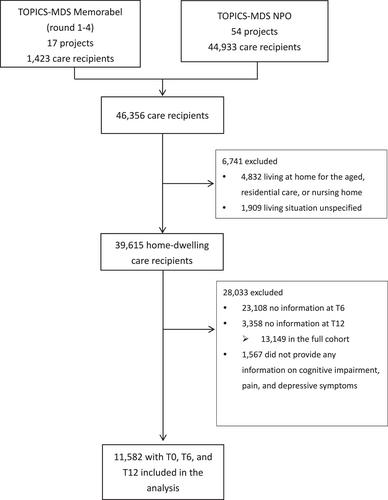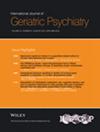Longitudinal associations between subjective cognitive impairment, pain and depressive symptoms in home-dwelling older adults: Modelling within-person effects
Abstract
Objectives
Cognitive impairment, pain and depressive symptoms are common and interrelated factors in older adults. However, the directionality and specificity of their association remains unclarified. This study explored whether these factors prospectively increase reciprocal risk and examined the longitudinal association between these factors and quality of life (QoL).
Methods
This study used longitudinal data from The Older Persons and Informal Caregivers Survey Minimal Data Set (TOPICS-MDS; the Netherlands). Older adults self-reported cognitive impairment, pain, depressive symptoms and QoL at baseline and after 6 and 12 months of follow-up. The Random Intercept Cross-Lagged Panel Model was used to assess the prospective association between the three factors, while a multilevel linear regression analysis in a two-level random intercept model was used to examine the longitudinal associations between the three factors and QoL at the within-person level.
Results
The data of 11,582 home-dwelling older adults with or without subjective cognitive impairment were analysed. At the within-person level, pain at 6 months was associated with subsequent depressive symptoms (β = 0.04, p = 0.024). The reverse association from depression to pain, and longitudinal associations between pain and subjective cognitive impairment and between depressive symptoms and subjective cognitive impairment were non-significant. Pain, depressive symptoms and subjective cognitive impairment showed a significant association with poor QoL 6 months later.
Conclusions
A directional relationship was observed from pain to depressive symptoms. Pain reduction holds a potential benefit in the prevention of depressive symptoms, ultimately optimising the QoL of older adults.


 求助内容:
求助内容: 应助结果提醒方式:
应助结果提醒方式:


